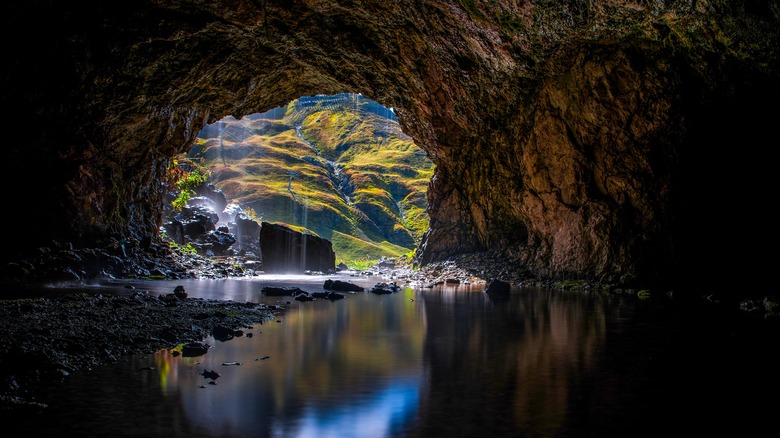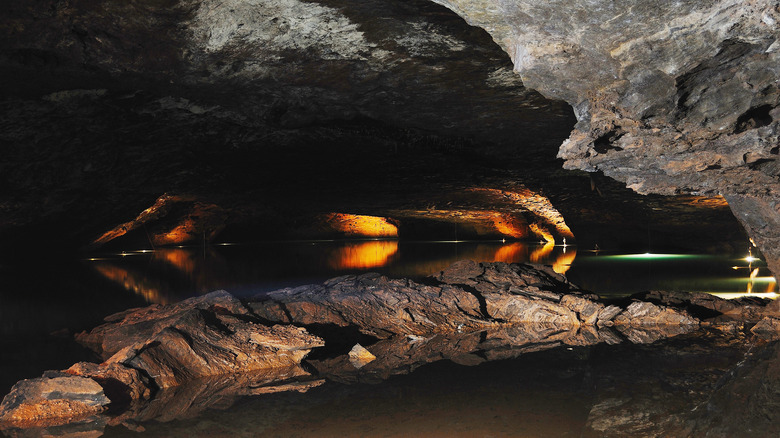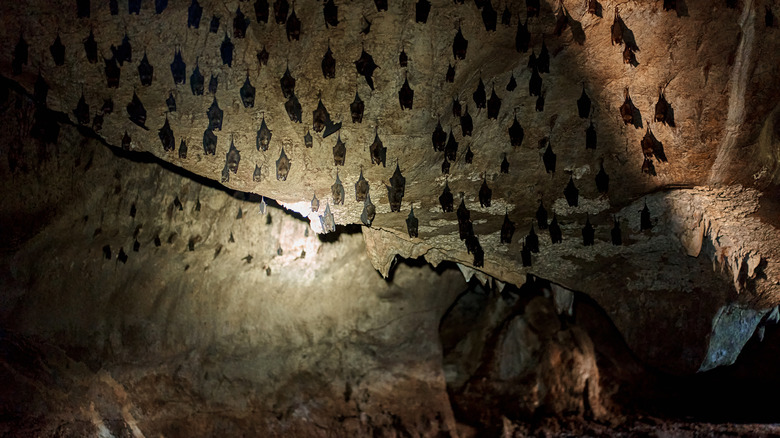A Disproportionate Number Of Caves In The US Are Located In One Southern State
Caves have been veiled by darkness and mystery long before humans roamed the Earth. Filled with the drawings created by our ancestors and distant evolutionary cousins, fossilized records of prehistoric eras, and otherworldly, sparkling rock formations, caves bear the story of time unlike any history book ever could. Humans have always flocked to caves for both shelter and exploration. But our species is not the only one that finds comfort in their subterranean, cool embrace.
Bats, crustaceans, and creepy crawlers like insects and arachnids depend on caves for survival, and many of those caves are not too far from home for many Americans (via The Nature Conservancy). While there are tons of famous caves to explore throughout the country, like the systems in Mammoth Cave National Park, Kentucky (via National Park Service), or Carlsbad Caverns National Park, New Mexico (via National Park Service) — 20% of the nation's caves are in just one region.
You're the only ten(thousand)-I-see
It's true. The home state of Nashville's finest musicians hosts over 20% of all the United States' caves (via The Nature Conservancy). Considering Tennessee's rich musical history, it's only fitting that one of these 10,000 statewide systems — The Caverns in Pelham — is utilized as a concert hall for its booming acoustics (via The Caverns).
But there are more to these Tennessee caves than vast numbers and eerie echoes. In fact, The Lost Sea in Monroe and McMinn Counties is home to the largest underground lake on the continent (which can be explored via glass-bottom boat), and Ruby Falls in Chattanooga is home to the largest underground waterfall (via Fox 17). There's also Racoon Mountain Caverns in Hamilton County, where you can pan for gemstones, and Dunbar Cave State Park in Montgomery County, where visitors can appreciate Native American cave art. These are just some of the thousands of caves to explore in this state, but their significance is far greater than simply serving as tourist attractions for visitors.
Guano know why caves are so important?
The reason why so many caves have formed underground in Tennessee is due to the prevalence of limestone in the state, which was formed as calcium deposits on the bottom of prehistoric oceans (via Fox 17). When exposed to the elements, the limestone sediment eroded into caves, which are now home to countless creatures like insects, arachnids, crustaceans and bats (via The Nature Conservancy).
Two major occupiers of Tennessee caves are gray and Indian bat species, which are both federally classified as endangered. While little is known about these subterranean dwellers, there are efforts in place to protect them, as their environments are fragile. These bats use caves for shelter through hibernation and maternity, two very delicate systems of bat lifecycles. Conservational projects, like installing the world's largest cave gate at Hubbard's Cave in Warren County, Tennessee, are critical to protecting the little critters.


